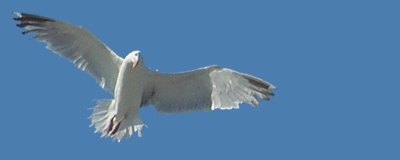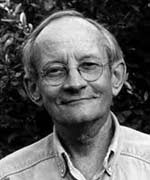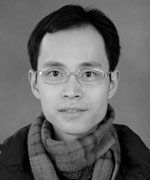|
|
 |
 |

Ted Kooser
泰德-库瑟
  Ted Kooser was born in Ames, Iowa, in 1939. He is the author of more than ten books of poetry, including Sure Signs (1980); One World at a Time (1985); Weather Central (1994); Delights & Shadows (2004). He served as the Poet Laureate of the United States from 2004 to 2006. Ted Kooser was born in Ames, Iowa, in 1939. He is the author of more than ten books of poetry, including Sure Signs (1980); One World at a Time (1985); Weather Central (1994); Delights & Shadows (2004). He served as the Poet Laureate of the United States from 2004 to 2006.
泰德-库瑟于1939年出生于美国爱荷华州的艾姆斯镇,他曾出版十多本诗集,包括:《确定的信号》(1980);《一次一个世界》(1985);《中央气象》(1994);《欢乐与阴影》(2004)。库瑟于2004-06年间任美国桂冠诗人。
|

|

译者
Translator
冯冬
Peter Feng
 
冯冬,1979年生于重庆,当过大学英文教师,南京大学英文博士班学生,曾译过游记《中华帝国纪行》、《亲密接触中国》、小说《蛛网与磐石》、诗歌《西米克的诗》等,在《新大陆》等诗刊上发表过作品,主要研究诗歌、精神分析和当代哲学。
Peter Feng was born in Chongqing, China, in 1979. He taught English at a Chinese college for two years. He is currently a PhD student at Nanjing University. He has co-translated a travelogue A Journey through the Chinese Empire, Intimate China, a novel The Web and the Rock and a book of translation Poems of Charles Simic. His poems appeared in Chinese poetry journal New World Poetry Bimonthly and others. His study includes poetry, psychoanalysis, and contemporary philosophy.
|
 |
The Blind Always Come as Such a Surprise |
 |
盲人总出乎意料地到来 |
The blind always come as such a surprise,
suddenly filling an elevator
with a great white porcupine of canes,
or coming down upon us in a noisy crowd
like the eye of a hurricane.
The dashboards of cars stopped at crosswalks
and the shoes of commuters on trains
are covered with sentences
struck down in mid-flight by the canes of the blind.
Each of them changes our lives,
tapping across the bright circles of our ambitions
like cracks traversing the favorite china.
|
|
盲人总出乎意料地到来,
突然充满电梯
带着巨大白色豪猪的拐杖,
或以吵闹的人群向我们压来
如飓风之眼。
汽车挡泥板停在人行横道
乘火车上班的人的鞋
被句子覆盖
被盲人的拐杖从半空击落。
他们每一个人改变我们的生活,
敲打我们野心的光环
如心爱的瓷器上的裂缝。
|
 |
The Failed Suicide |
 |
自杀未遂 |
You have come back to us windblown
and wild-eyed, your fingertips numb
from squeezing the handle grips
of a four-day coma. Somehow,
out in that darkened countryside,
the road grew circular
and brought you back. We seem
another city, but the street signs
keep spelling your name, the same gnats
keep clouding the lights
high over the empty parking lots,
and the clock on the funeral home
(always a few minutes fast)
shines down upon a little fountain
where, nestled in curls of dead leaves,
a stone frog the color of your brain
prepares his leap.
|
|
你回到我们的世界,被风吹过
两眼发直,你的指尖因紧握
四天昏迷的手柄而麻木。
昏暗的乡间,路以某种方式
变成圆圈,
将你带回。我们好像
是另一座城市,但路标
总在拼写你的名字,同样的蚊子
总在遮蔽
空的停车场上方的灯光,
殡仪馆的钟
(总快了几分)
照耀一个小小的喷泉,
一只石头般的青蛙,有着你
大脑的颜色,蛰居于卷曲的腐叶
准备跳跃。
|
 |
A Letter |
 |
一封信 |
I have tried a dozen ways
to say those things
and have failed: how the moon
with its bruises
climbs branch over branch
through the empty tree;
how the cool November dusk,
like a wind, has blown
these old gray houses up
against the darkness;
and what these things
have come to mean to me
without you. I raked the yard
this morning, and it rained
this afternoon. Tonight,
along the shiny street,
the bags of leaves—
wet-shouldered
but warm in their skins—
are huddled together, close
so close to life.
|
|
我试了十几种方式
来言说那些事
都失败了:月亮如何
带着它的伤痕
穿过空的树
爬上枝头;
十一月清凉的暮色如何
像一阵风,把灰色旧房子
吹向黑暗;
以及这些事对于
失去你的我来说
意味着什么。早晨
我耙平了庭院,下午
下起雨来。夜晚,
闪亮的街上,
一袋袋落叶——
肩头湿了
肌肤仍温暖——
蜷缩在一起,靠近
如此地靠近生活。
|
|
|







